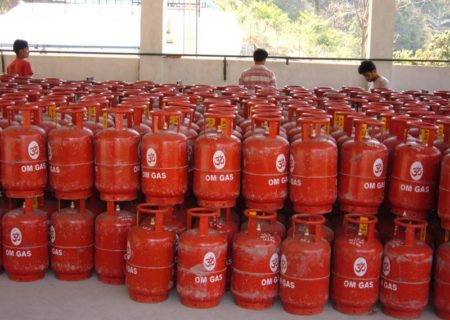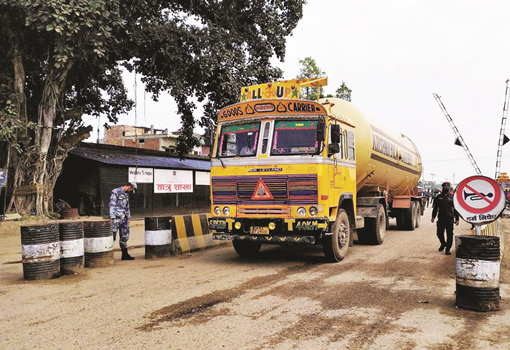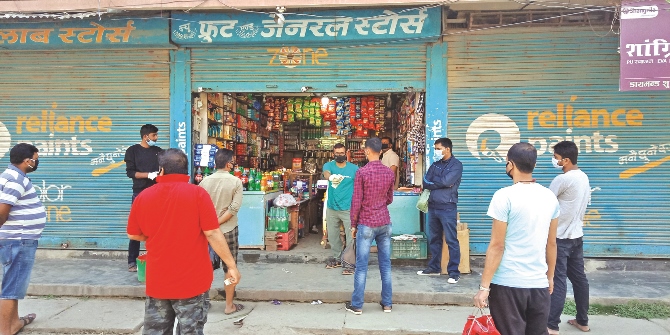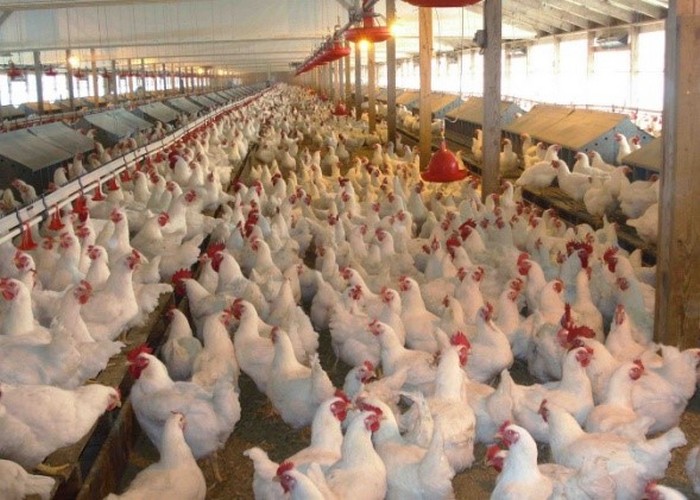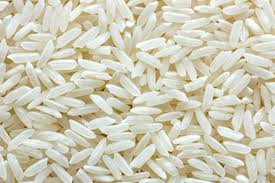Sales of dry fruits goes down this Tihar
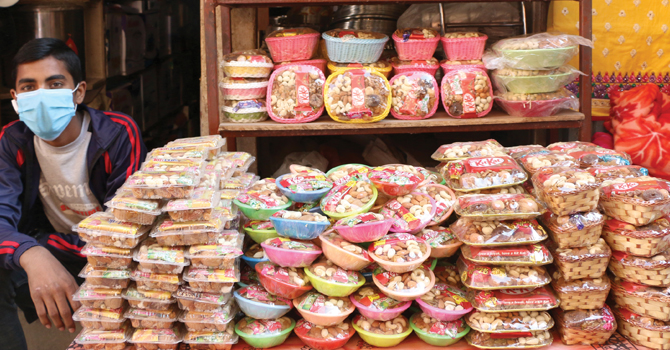
By Laxman Kafle
Kathmandu, Nov.13 : Sale of dry fruits has not increased even on the eve of Tihar festival.
The major markets, including New Road, Makhan, Indrachowk and Asan have not received crowd even just a day before Tihar begins.
In the past, the markets in New Road, Makhan, Indrachowk and Asan used to be filled with the crowds of consumers to buy dry fruits as many people think that dry fruits are available in these markets at a cheaper rate than in other markets.
The biggest trade during the festival used to be of the dry fruits popularly called 'Bhai Masala', which are presented to brothers by sisters on the day Bhai Tika. Even if it is expensive, it is included in the menu of all consumers during Tihar.
However, the sale of dry fruits (Vimasala), which is used as a necessity during the festival, has decreased by 50 per cent this year compared to last year, said traders.
The economic and social life of the people have been affected by COVID-19, which has also affected the business of the festival, said Anar Ratna Tuladhar, a trader of Asan.
The transaction of dry fruits dropped by above 50 per cent this year even the price of dryfruits has declined significantly, he said.
“I have been doing this business here for the last two decade, but I have never witnessed this big drop in the sales of dry fruits during Tihar festival,” he told The Rising Nepal, on Thursday.
This year, the price of dry fruits, including cashew nuts, pistachio, almond and walnut has dropped ranging from Rs. 50 to 200 per kilogram, he said.
Retail price of cashew nuts at present is Rs. 1,400 to 1,450 per kilogram, pistachio costs Rs. 1,750 per kg and almond is available at Rs. 1,100 per kg and walnut at Rs. 600 per kg.
Similarly, coconut costs Rs. 400 per kg, green cardamom Rs. 4,000 per kg and large cardamom Rs. 1,000 and raisins Rs. 550 per kg.
According to him, the price of dry fruits varies from one place to another based on their quality.
Another trader of Asan, Sagar Tuladhar, said that the sales of dry fruits used to be more than 15 folds during the Tihar festival compared to the normal period.
However, this year, the traders are shocked seeing the sharp fall in the sales of dry fruits even in the festival, he said.
“Consumers are purchasing dry fruits just for ritual formalities as income of people has been affected badly for the last seven months due to COVID-19,” he said.
Normal consumers have been purchasing dry fruits spending around Rs. 1,000 to 1,500 at present while a consumer used to purchase dry fruits worth Rs. 5,000 until last year’s Tihar, he added.
"The COVID-19 pandemic has reduced the consumers’ purchasing power, which has affected the dry fruits’ trade," Ajay Gupta, a street vendor at Indrachowk, said.
According to him, he has been selling dry fruits worth Rs. 5,000 a day this year while daily sale used to more than Rs, 20,000 last year.
The businessmen sell dry fruits by packing according to the choice of the consumers. Packing from Rs. 50 to Rs. 1,000 is the choice of consumers, he said.
Sumitra Khatiwada of Sankhu said that she arrived in Asan to buy dry fruits and other goods for Tihar festival.
Price of dry fruits has decreased this year compared to last year, she said, however, the consumers are not in position to purchase in high quantity due to reduction in their income.
"I will buy all items of dry fruits worth Rs. 2,000. Dry fruits are required in Tihar festival," she said.
Recent News

Do not make expressions casting dout on election: EC
14 Apr, 2022
CM Bhatta says may New Year 2079 BS inspire positive thinking
14 Apr, 2022
Three new cases, 44 recoveries in 24 hours
14 Apr, 2022
689 climbers of 84 teams so far acquire permits for climbing various peaks this spring season
14 Apr, 2022
How the rising cost of living crisis is impacting Nepal
14 Apr, 2022
US military confirms an interstellar meteor collided with Earth
14 Apr, 2022
Valneva Covid vaccine approved for use in UK
14 Apr, 2022
Chair Prachanda highlights need of unity among Maoist, Communist forces
14 Apr, 2022
Ranbir Kapoor and Alia Bhatt: Bollywood toasts star couple on wedding
14 Apr, 2022
President Bhandari confers decorations (Photo Feature)
14 Apr, 2022



